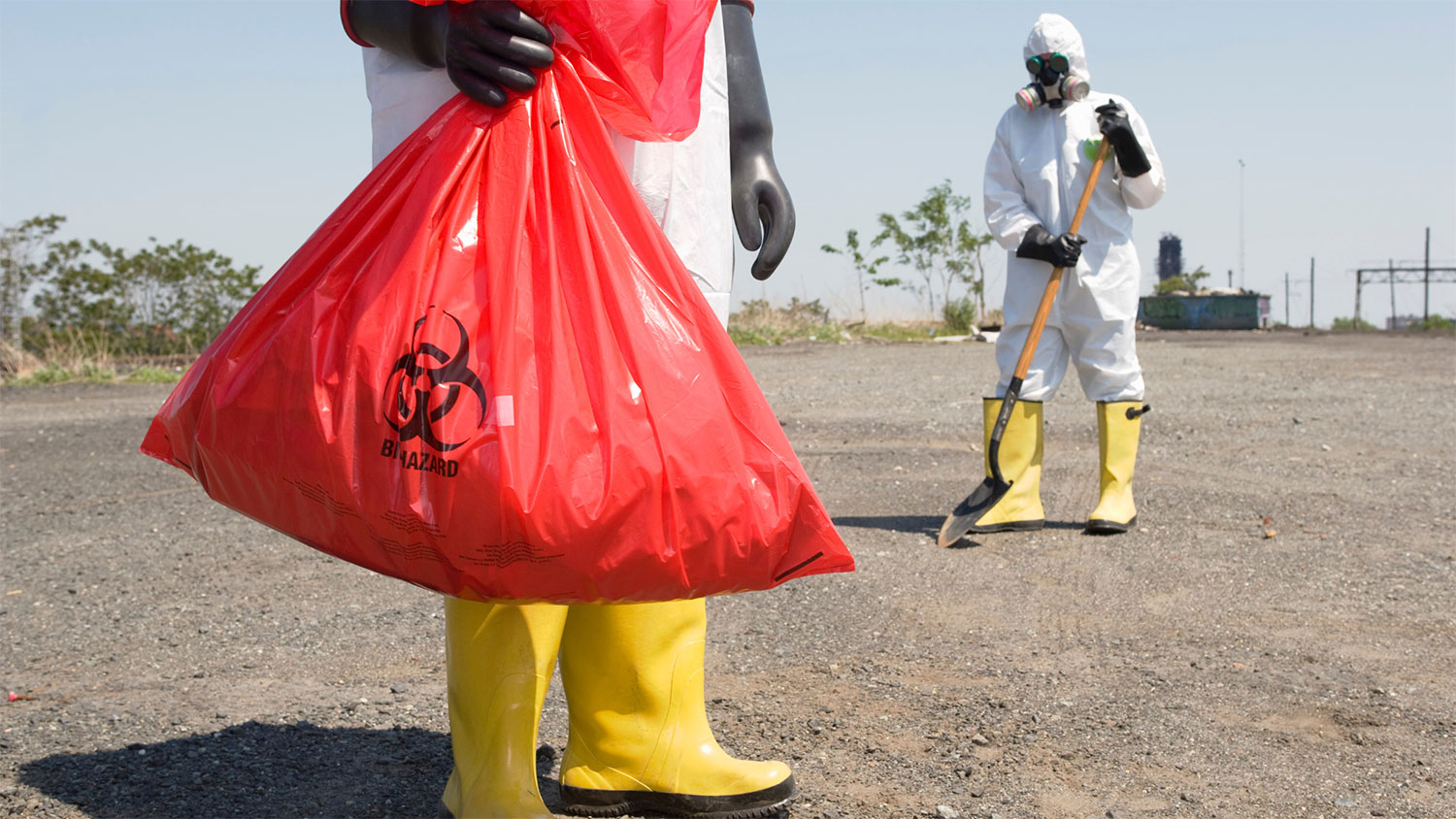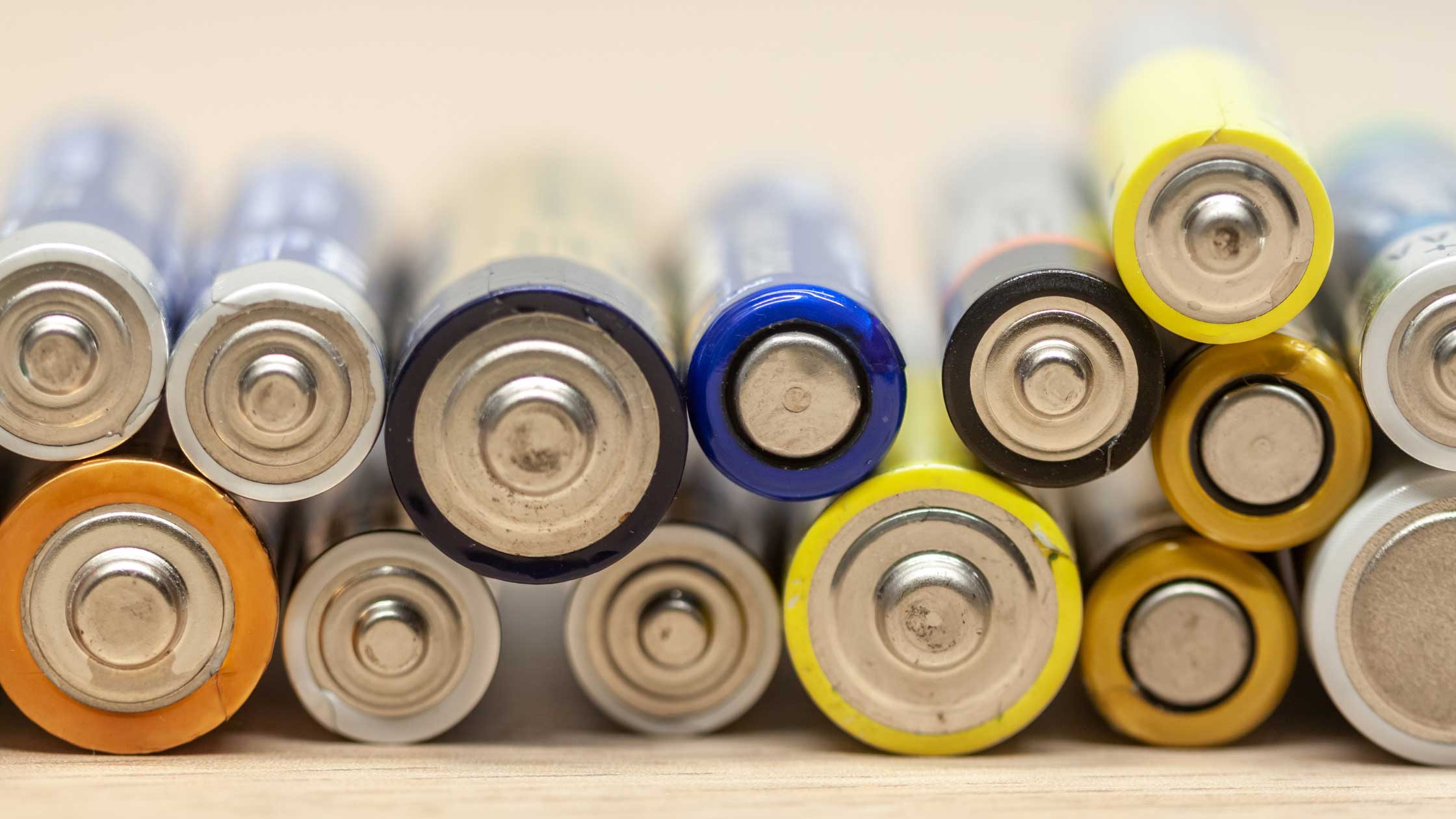Hazardous waste: are you handling and disposing of it properly?
Thursday 1st May 2025

Business waste comes in many forms.But undoubtedly one of the hardest to handle is that which we define as “hazardous waste”.
Broadly speaking, hazardous waste is a term that relates to any waste materials that pose a risk to human health or the environment. In essence, this kind of material needs to be handled with extra care – and this inevitably comes with some headaches and associated costs. After all, if you can’t simply tip it in general waste then it takes a bit more thought.
There are now strict UK regulations in place to deter organisations from cutting waste disposal corners and serious consequences for non-compliance. So, now is the time to develop a better understanding of hazardous waste – particularly if you aren’t sure whether you are managing it properly.
Let’s take a closer look at what counts as hazardous waste, why it needs to be disposed of with extra care and where it goes when it leaves your business premises.
What is hazardous waste?
Hazardous waste is any unwanted material that contains substances harmful to people or the environment. Under UK law, this includes a wide range of materials, such as:
- Chemicals and solvents
- Paints, varnishes and adhesives
- Waste electrical and electronic equipment (WEEE)
- Batteries
- Fluorescent tubes
- Contaminated rags, PPE or containers
- Oils (except edible ones)
Even small amounts of hazardous waste can be seriously harmful, which is why this type of rubbish is so carefully regulated. If your business produces any of the above, you should be in no doubt that you are handling hazardous waste.

Who produces hazardous waste?
You might assume hazardous waste is only handled by large manufacturers, but many businesses utilise and then discard of harmful materials each and every day. SMEs disposing of hazardous waste on a regular basis include:
- Garages and workshops: oils, brake fluids, batteries
- Beauty salons: nail polish remover, chemical dyes
- Offices: printer toner, fluorescent bulbs
- Healthcare and dental clinics: sharps, disinfectants, chemical cleaners
- Construction sites: asbestos, adhesives, treated wood
What are the legal obligations for businesses creating/disposing of hazardous waste?
The UK’s Hazardous Waste Regulations 2005 place a legal duty of care on all businesses that produce, store, transport or dispose of hazardous waste. The key responsibilities placed upon organisations include:
- Identifying and classifying waste correctly
- Storing it safely, with proper containment and clear labelling
- Maintaining records such as consignment notes for at least three years
- Only using licensed waste carriers and authorised disposal facilities
Failure to meet these requirements can lead to significant fines and legal action.
Common mistakes to avoid when handling hazardous waste
Many businesses fall short on compliance through simple errors like mixing hazardous waste with general waste, failing to label waste correctly, storing hazardous materials in unsuitable or unsecured areas, and losing track of documentation.
Just as worryingly, organisations may opt to work with unlicensed and unqualified waste collectors in order to get the cheapest deal. However, these providers can often be unscrupulous and regularly run unauthorised waste disposal facilities that cause significant environmental damage to the local area – contaminating soil and water sources by releasing harmful chemicals or contributing to air pollution. Other dangers include the risk of fires and even explosions from handling particularly volatile materials.
Unlicensed providers are also more likely to engage in practices such as fly-tipping, which have been shown to put local wildlife and communities in danger. The consequences of working with unlicensed waste providers can be significant, often resulting in substantial fines or even criminal charges. They also open an organisation up to reputational damage.
Best practices for hazardous waste management
To stay compliant and reduce risk:
- Store waste securely in sealed, clearly labelled containers
- Keep hazardous waste separate from other waste streams
- Train staff on safe handling and emergency procedures
- Use licensed carriers with proper documentation
- Maintain up-to-date records of all hazardous waste transfers
Being proactive keeps you safe, compliant, and prepared for audits or inspections.
How we can help at Everflow
Managing hazardous waste doesn’t have to be complicated. At Everflow, we support businesses to handle and dispose of hazardous waste in a safe, reliable and cost-effective manner, in line with all regulations and environmental requirements.
If your business handles hazardous waste – even in small quantities – it pays to be sure you’re doing it right. With our help you can stay compliant, reduce risk, and protect what matters most.